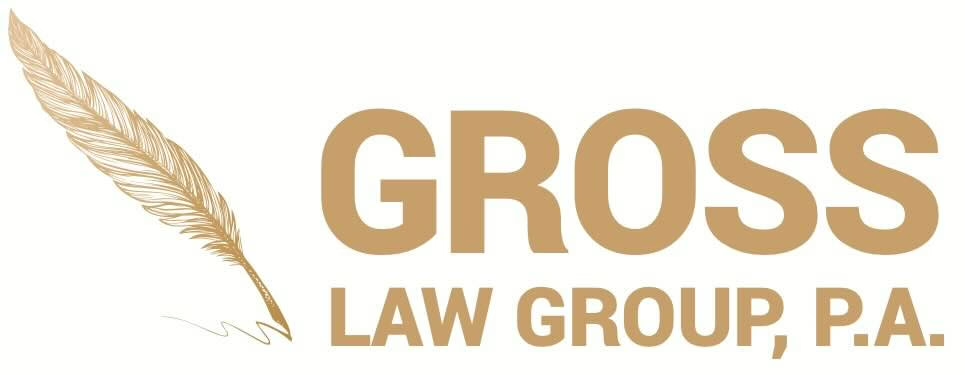
False advertising claims can disrupt your operations, damage your brand, and trigger costly lawsuits. Florida businesses must tread carefully when creating promotional content, especially in a competitive environment where both consumers and competitors scrutinize marketing practices. Learning how to protect your business from false advertising claims starts with understanding how Florida laws work and what steps minimize risk.
In this guide, you can learn the laws that apply to your marketing efforts and key strategies to avoid missteps. You can also discover how to reduce exposure to false advertising accusations.
If you need tailored legal guidance, reach out to an experienced business attorney near you. They can help you stay compliant with both state and federal advertising laws or defend you against allegations.
Schedule Your Free Consultation
What Constitutes False Advertising in Florida?

False advertising doesn’t always mean flat-out lies. Sometimes, leaving out a key fact, exaggerating a benefit, or promoting a misleading price can land a business in trouble. The law looks at how the average consumer interprets a message—not just the intent behind it.
Legal Definition of False Advertising
Florida’s Deceptive and Unfair Trade Practices Act (FDUTPA) governs many types of business conduct, including advertising. Under FDUTPA, a business can’t make representations that are likely to mislead consumers, even if unintentionally. Violations don’t require the consumer to prove intent to deceive—just that the practice could mislead a reasonable person.
The Federal Trade Commission (FTC) applies similar principles but operates on a national scale. FTC rules also require businesses to back up any objective claims with solid evidence. Together, FDUTPA and the FTC set a clear expectation: advertising must be truthful, substantiated, and fair.
A key concept here is “material misrepresentation.” That refers to any claim that affects a consumer’s decision to buy. If the claim—true or not—influences the purchase, it’s material. That includes things like performance results, price comparisons, or endorsements.
Common Examples of False Advertising Claims
Florida businesses have faced allegations for:
- Bait and switch tactics: Advertising a low-priced product just to lure customers in, only to push more expensive items.
- Misleading pricing: Claiming a “sale” price that’s never been the regular price.
- Unproven product benefits: Promoting health benefits or performance results without evidence.
- Endorsements or testimonials: Using customer reviews or influencer support without proper disclosure.
- Omitting material facts: Leaving out details like extra fees or required conditions.
Why Are False Advertising Claims on the Rise?
Businesses today operate in a fishbowl. Social media, online reviews, and instant access to information mean every ad, claim, or tweet can come under the microscope. Missteps that once went unnoticed now get shared—and reported—quickly.
Digital Marketing’s Impact
Social media transformed advertising into a 24/7 stream of content. That speed comes with risk. One incorrect claim can go viral for the wrong reason. Sponsored posts, influencer shoutouts, and video testimonials need the same scrutiny as a TV commercial or print ad. Competitors and regulators now monitor social platforms and e-commerce listings with greater precision.
Consumers also hold more power. They document misleading claims with screenshots and file complaints faster than ever before. Florida’s Attorney General and the FTC take notice when online chatter spikes around a particular brand or industry.
Industry-Specific Risk Factors
In Florida, certain industries face higher scrutiny:
- Health products: From supplements to wellness services, any claim about health benefits needs airtight substantiation.
- Financial services: Credit repair, debt relief, and loan programs draw heavy regulatory oversight.
- Real estate: Advertisements about pricing, location benefits, or home features often fall under FDUTPA scrutiny.
These industries attract more complaints—and enforcement—because their services affect large financial or health-related decisions.
Financial Impact of Violations
Even a single violation can trigger:
- Fines and restitution: Businesses have paid millions in settlements.
- Defense costs: Hiring legal counsel and conducting internal reviews isn’t cheap.
- Reputational harm: Negative press coverage, social media backlash, and lost customer trust often cost more than the legal case itself.
According to the Better Business Bureau, more than 35% of consumer complaints in Florida involve advertising and sales practices.
How Can You Audit Your Current Advertising Practices?
Even the most well-intentioned businesses can overlook risky language or outdated disclaimers. Auditing your advertising practices puts you in control, allowing you to catch potential violations before they lead to consumer complaints or legal action. A consistent review process helps maintain compliance with Florida’s Deceptive and Unfair Trade Practices Act (FDUTPA) and Federal Trade Commission (FTC) standards.
Key Areas to Review
Start with the content that reaches your audience. Each piece of communication reflects on your brand and can carry legal risk.
- Website Claims and Online Marketing Materials: Review every product description, promotional banner, comparison chart, and blog article. Watch for exaggerated benefits, inaccurate pricing, or missing disclosures. Ensure that claims like “best in the state” or “guaranteed results” have the necessary support or qualifiers.
- Product Packaging and Labeling: Look at labels to confirm that ingredient lists, warnings, and benefit statements align with regulatory expectations. Ensure that promotional phrases on packaging—such as “clinically tested” or “doctor recommended”—have the documentation to support them.
- Sales Scripts and Customer Communications: Whether your team communicates through phone, email, or in person, scripts and talking points should stay within approved language. Avoid promises or implications that go beyond what’s backed by evidence.
- Promotional Materials and Special Offers: Flyers, print ads, event signage, or sponsored digital ads must reflect truthful pricing and clearly state any terms. For example, if an offer says “50% off,” make sure the baseline price is verifiable and the discount is actually available.
Documentation Requirements
Good recordkeeping supports your claims and protects your business during disputes or audits.
- Substantiation for Claims: Keep research, survey results, scientific studies, or customer usage data that justify any factual statement made in your advertising. Claims such as “reduces wrinkles by 30%” or “lasts twice as long as leading brands” need to be backed by objective evidence.
- Version History and Approval Logs: Track edits to ads, who approved them, and when. That way, if you’re asked why a claim appeared, you’ll have context and proof that it was reviewed.
- Review Procedures and Training Records: Maintain a record of internal policies, checklists, and staff training related to advertising compliance. This shows regulators that your business takes consumer protection seriously and has systems in place.
Using Third-Party Verification
An internal review may not catch everything. Outside support adds a layer of security and credibility.
- External Compliance Reviews: Engage marketing compliance consultants or legal counsel to periodically review your content—especially high-visibility campaigns. They’ll often spot risks your team may miss due to familiarity.
- Industry Certification Programs: Participation in certification or seal programs demonstrates that your business follows industry-recognized advertising standards. These seals can also boost consumer confidence.
- Testing and Verification Services: For claims involving product performance—such as “kills 99% of bacteria” or “withstands 100 mph winds”—use independent labs or testing agencies. Their reports serve as third-party evidence if your business is ever challenged.
Auditing your advertising practices isn’t about perfection—it’s about minimizing exposure and acting responsibly. A thorough, recurring audit process can prevent regulatory attention, avoid disputes with competitors, and build long-term trust with your customers.
What Specific Claims Require Special Attention?
Some types of advertising claims get scrutinized more than others. These areas demand extra care:
Pricing and Discount Claims
Truth in pricing matters. Florida law requires businesses to clearly state:
- Whether the product was ever sold at the “regular” price.
- Any conditions tied to a discount (like “buy one, get one free”).
- All fees or charges tied to the transaction.
Saying a product is “free” when a shipping charge applies can still be misleading.
Performance and Efficacy Claims
Claims about results—like weight loss, cleaning power, or speed—need strong support. That means:
- Scientific studies or data that support the claim.
- Clear statements that results may vary.
- Avoiding absolutes like “guaranteed” unless that’s backed by a return policy.
Endorsements and Testimonials
Endorsements need transparency. FTC rules require:
- Disclosures when a person is paid or incentivized.
- Honest reviews that reflect actual experience.
- Social media influencers to tag posts with “#ad” or “#sponsored” when applicable.
How Can You Implement a Preventative Compliance Program?
Putting a few systems in place helps prevent problems before they start. Compliance isn’t just about avoiding lawsuits—it protects your brand and customer trust.
Creating Advertising Review Procedures
Set up a clear process that includes:
- Initial content draft: Sales or marketing teams draft promotional content.
- Internal review: A designated person checks for compliance.
- Final approval: Someone with legal knowledge gives the green light before publication.
- Post-launch tracking: Monitor how the ad performs and how the public responds.
Staff Training Best Practices
Your employees should know what they can say—and what they shouldn’t:
- Include training as part of onboarding.
- Update the team whenever laws or regulations change.
- Use real examples to show what counts as misleading.
Monitoring Competitor Claims
Pay attention to what others say:
- Use competitor ads as benchmarks for your own.
- Watch for comparative claims that reference your business.
- Don’t hesitate to challenge misleading competitor ads through proper legal channels.
What Should You Do If Accused of False Advertising?
Even with precautions, disputes happen. An accusation doesn’t mean guilt—but it does require a smart response.
Immediate Response Steps
Here’s what to do:
- Preserve all related materials: Emails, ads, drafts, and review notes.
- Conduct an internal review: Understand who created the content and why.
- Limit public statements: Work with counsel before issuing any response.
When to Settle vs. When to Fight
Sometimes, resolving a case quietly protects your brand. Other times, setting the record straight is worth the effort. Weigh factors like:
- Total legal costs: Defending a suit can drain resources.
- Public perception: Admitting fault can damage trust, but fighting may draw more attention.
- Future risk: Settling may open the door for more claims.
If a competitor or regulator presses the issue without grounds, your business may need to assert its position in court.
Handling Regulatory Investigations
If the FTC or Florida’s Attorney General contacts you:
- Respond promptly and truthfully.
- Cooperate while protecting your rights.
- Negotiate carefully before agreeing to a consent decree or settlement.
How Can a Florida Business Attorney Help?

A business attorney doesn’t just show up when there’s a problem. Preventing claims in the first place saves time and money.
Preventative Legal Services
We help businesses:
- Create advertising review processes.
- Check marketing materials before they go live.
- Train teams on FTC and FDUTPA rules.
Representation in False Advertising Matters
If you’re accused of misleading advertising, we’ll:
- Defend against consumer lawsuits.
- Respond to regulatory demands.
- Handle disputes with competitors under the Lanham Act.
Industry-Specific Experience
Every sector has quirks. We know how advertising law works in:
- Retail and e-commerce
- Health and wellness services
- Real estate and property management
- Financial and legal services
We’ve worked in Florida courtrooms and understand how local judges interpret these rules.
Our Business Law Attorneys in Florida Can Help
Protecting your business from false advertising claims isn’t just about checking boxes. It’s about making smart choices that shield your brand and customers. Gross Law Group, P.A. works closely with businesses across Florida to keep their advertising compliant, accurate, and defensible.
We offer a confidential consultation to review your current practices and identify any red flags. If you’re unsure whether your ads follow the law or want to set up a solid review process, we can help.
Contact Gross Law Group, P.A. today by calling 888-858-1505. Let’s build confidence in your advertising—before anyone else starts looking at it too closely.
Meta Description: Learn how to protect your business from false advertising claims in Florida. Discover strategies to comply with FDUTPA and FTC regulations, avoid legal trouble, and safeguard your brand’s reputation.

